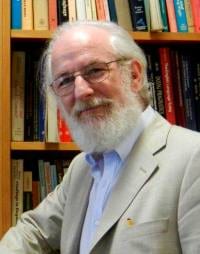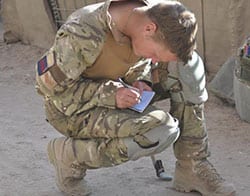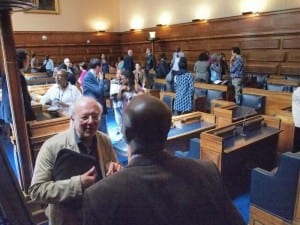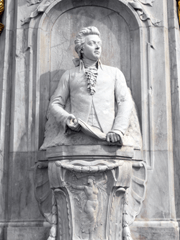English Grammar Day 2014
By zclef78, on 29 July 2014
In a world where economics and technology dominate, what is the place of grammar in our society? Is it important?
The English Grammar Day 2014 (held on July 4) sought to tackle these questions. Organised by Charlotte Brewer (University of Oxford English Language and Literature) and Bas Aarts (UCL English Language & Literature) in association with the British Library, this conference brought together some of the preeminent authorities on language use: Debbie Cameron, David Crystal, Dick Hudson, Debra Myhill and John Mullan.
The event traversed the history of the “grammar debate” from Jonathan Swift’s Proposal for Correcting, Improving, & Ascertaining the English Tongue (1712) to Michael Gove’s new curriculum. Yet the overriding theme of the day was the teaching of grammar (or lack thereof) in schools.
Montaigne’s assertion that ‘the greater part of the world’s troubles are due to questions of grammar’ was perhaps hyperbolic, but as Dick Hudson (UCL Psychology & Language Sciences) pointed out in the opening lecture, London is experiencing a literacy crisis. Citing an article in the Evening Standard from 2011 which claimed that one million people in London could not read, he discussed the consequences of the decline in the teaching of grammar in the 20th century. “From the 1920s to the 1960s grammar research died. The effect of a subject dying at university means that the next generation of school teachers never hear about it during their undergraduate years–a recipe for disaster”, he argued.
Each speaker had their own ideas of how this could be remedied, but the prevailing opinion was that a playfulness with language is imperative. As Debra Myhill observed, British humour is often based on grammatical nuance: grammar is the difference between knowing your shit and knowing you’re shit (not an example for the primary school kids).
 Close
Close





